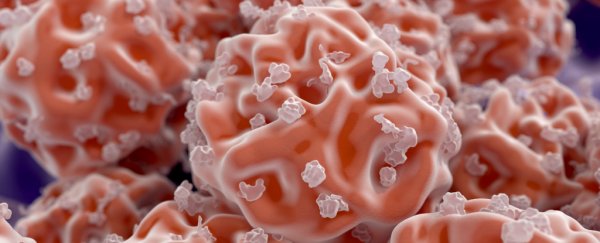Though their use is marred by controversy and debate, stem cells are one of our best bets when it comes to developing regenerative treatments for a plethora of different conditions. Now, scientists believe they've found a brand new type of stem cell hidden in plain sight called XEN, also referred to as iXEN, and it could lead to new ways to study birth defects and reproductive problems.
Before we dive into the latest discovery, it's worth mentioning how researchers have been using stem cells up to this point. Pluripotent stem cells are so important because they have the potential to develop into every cell in the body, effectively allowing researchers to heal any type of tissue. In the past, these cells were harvested from embryos, but researchers have now figured out how to unlock the potential of pluripotent stem cells using adult cells - avoiding the controversy.
These cells are known as induced pluripotent stem cells (iPS) and researchers create them by "reactivating embryonic genes to 'reprogram' mature adult cells". By doing so, researchers can to an extent, control what these cells become, which means they have the power to regrow damaged tissues.
But it's long been known that when an embryo is producing stem cells it also produces something called XEN cells, which are responsible for making embryonic tissues instead of bodily tissues.
Knowing this, Michigan State University researchers wondered if XEN cells were also being produced during the reprogramming of adult cells into iPS cells.
To test the hypothesis, the team studied iPS cultures and found iXEN colonies flourishing right alongside them. This proves that reprogramming cells in the lab also produces iXEN cells, just like embryos do.
The funny thing about this discovery is that it was literally sitting right in front of countless researchers for years, because these leftover iXEN cells were considered trash, and thrown out after the iPS production process.
"Other scientists may have seen these cells before, but they were considered to be defective, or cancer-like," said Tony Parenti, the study's lead author. "Rather than ignore these cells that have been mislabelled as waste by-products, we found gold in the garbage."
To ensure these iXEN cells were not cancer-like, the team studied mice models. They also found that they could alter XEN genes inside cells to increase the production of iPS cells and decrease the production of iXEN cells. In other words, the discovery of iXEN cells will allow researchers to improve the production of iPS cells and, therefore, make the whole process a lot easier.
Other than offering a better way to make iPS cells, the researchers believe that studying and using iXEN cells can offer a new way to study birth defects, since the cells are responsible for tissues at early stages of embryonic development.
Now, the team will have to test their findings on humans instead of mice. If everything goes as planned, we could have a brand new type of induced cell on our hands, which is one step closer in their goal of understanding how stem cells can be produced from adult cells.
The team's findings were reported in Stem Cell Reports.
